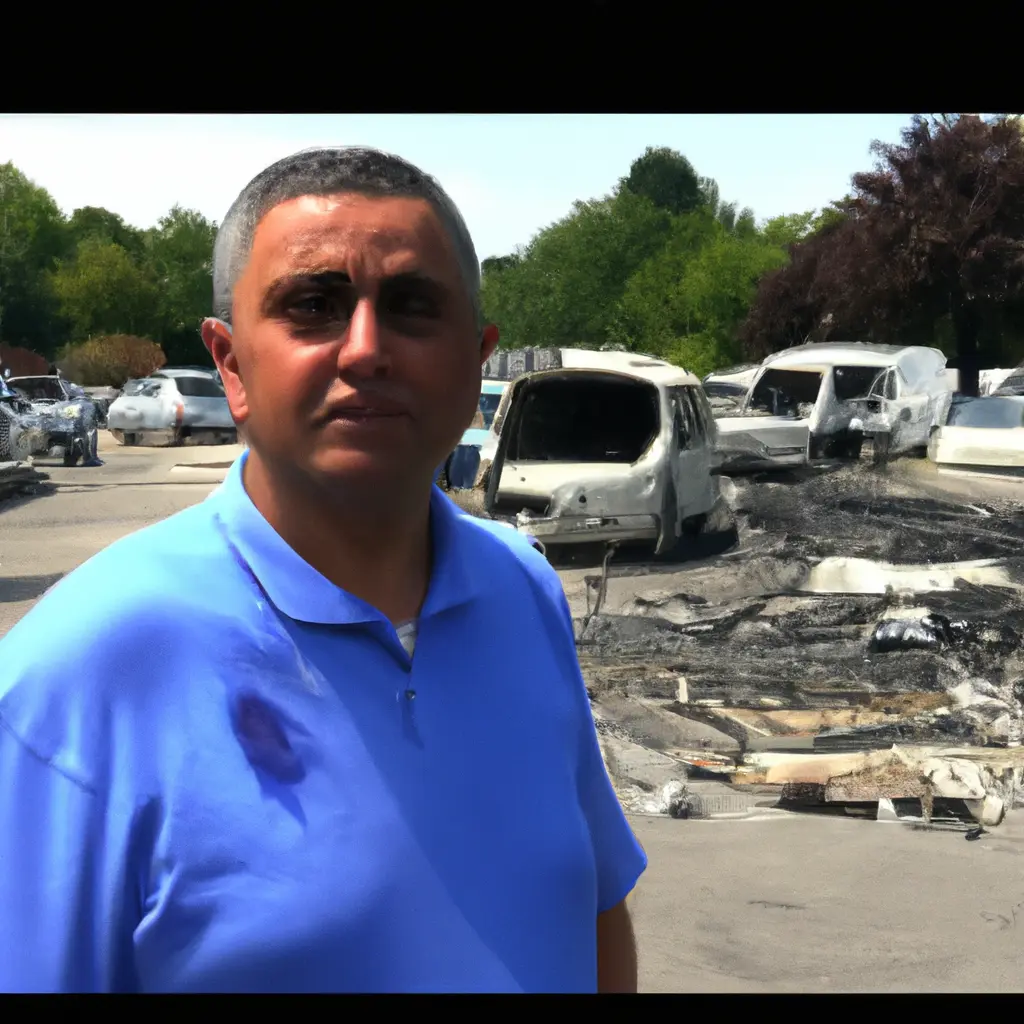The unrest in France: Paris and the reigniting tension

After days of unrest in France, calm has returned to La Grande Borgne. The local mafia is back in control in a huge residential area south of Paris: they are threatening weapons while hiding their faces.
The police are nowhere to be seen. "In some suburban areas they have better weapons than we do," one police officer told us, on condition of anonymity.
We spoke to a police officer who faced rioting communities around Paris last week as cities across France exploded with anger after the murder of 17-year-old Nachel. He was shot dead by a police officer at a traffic police post in Nanterre, west of Paris, and the policeman who fired through the car window is in custody on charges of "premeditated murder".
The policeman described the riot as "very violent". But the problem between France's suburbs and the police goes much deeper than the occasional explosions of fireworks and Molotov cocktails.
Trust and resentment smolder beneath the surface in places like La Grande Borgne, less visible than the guns carried by gangs but just as capable of exploding.
"When we intervene in an area like this, fear grips both sides," the police officer said. "But the police shouldn't be afraid. Fear does not help you make good decisions. "
The question now being asked from the suburbs to the Elysée Palace is how to prevent these tensions from recurring.
Jigi Diarra is a filmmaker who grew up in La Grande Borne, one of the poorest residential areas in France.
"My first encounter with the police was when I was 10 years old," he told me as we sat in the simple concrete playground where he played as a child, surrounded by high-rise apartment buildings.
It was a police ID check for the oldest member of his group, someone he considered a "big brother".
"They were very rude, so my older brother responded and they threw him to the ground," Jigi, 27, said. "It was my first encounter with the police, and when I was a kid I said to myself, 'this will be my natural enemy'. "
In those days, France abolished the intimacy police, known locally as the "contact police" - which Gigi believes was a big mistake.
"With the contact police, there was no violence, there was no crime," he said. "The language was great, they respected the people. People need to be brought together so that they feel each other. "
Now they only come when there are problems, he added.
Jigi - whose name means "hope" in Mali's Bambara language - said police officers called him "gorilla" and "monkey" when checking his documents.
Four years ago, he made a movie called "Malgré Eux" (In Spite of Them) that explored the racial divide between residents and police in his community.
13 May 2025
14 May 2025




In Genevilliers, on the other side of Paris, Hassan Ben M'Barak heads a network of local organizations created during the 2005 riots.
"We need at least 20 percent or 25 percent of the police officers patrolling the neighborhood to be from ethnic minorities or from the neighborhood itself," he said. "That's a very important aspect of it. "
The situation has become even more difficult to control since 2005, he explained, not only because of changes in policing, but also changes in funding policy, with money going to urban regeneration rather than local organizations on the ground.
There is no doubt that this time "no one - no association - called for calm" because they no longer have the power to influence the situation.
This week, French media reported that the police officer accused of killing Nahel told investigators he shot because he feared the 17-year-old youth would drive off and "entail" his fellow police officer.
The DSS police officer, known as Florian M., also denies threatening to shoot the young man in the head. The shooting and ensuing riots captured the attention of the French media for several days. But many believe the media's attitude here is as important as police and politics in stoking divisions between the suburbs and the rest of France.
"They need to talk about the big stories in the suburbs, not just when riots happen," Gigi said. "It will reduce racism and fear in other people. "
"We in the suburbs should consider every little brother, every little sister, our own. We have to consider every member of this territory as our family. "
Now Gigi is working on a new TV series about policing in France's suburbs and believes people outside the suburbs are starting to have an epiphany.
"When the 'yellow vests' protests happened, they realized why we in the suburbs say police brutality is disgusting. I told them, 'better late than never'. "
The "yellow vest" protests that began in France in 2017 sparked a national debate about police brutality after several protesters were seriously injured by police.
But for now, the fire has gone out in the suburbs, and with it, the attention to them has disappeared. And the high-rise apartment buildings that surround France's thriving cities are once again out of sight.
Comment
Popular Posts
Popular Offers

Subscribe to the newsletter from Hatamatata.com!
Subscribe to the newsletter from Hatamatata.com!
I agree to the processing of personal data and confidentiality rules of Hatamatata










